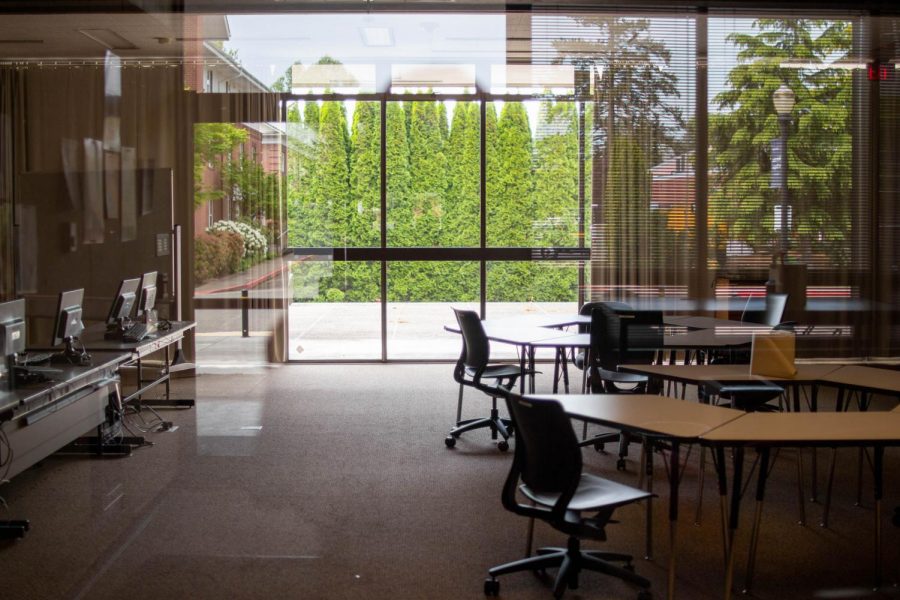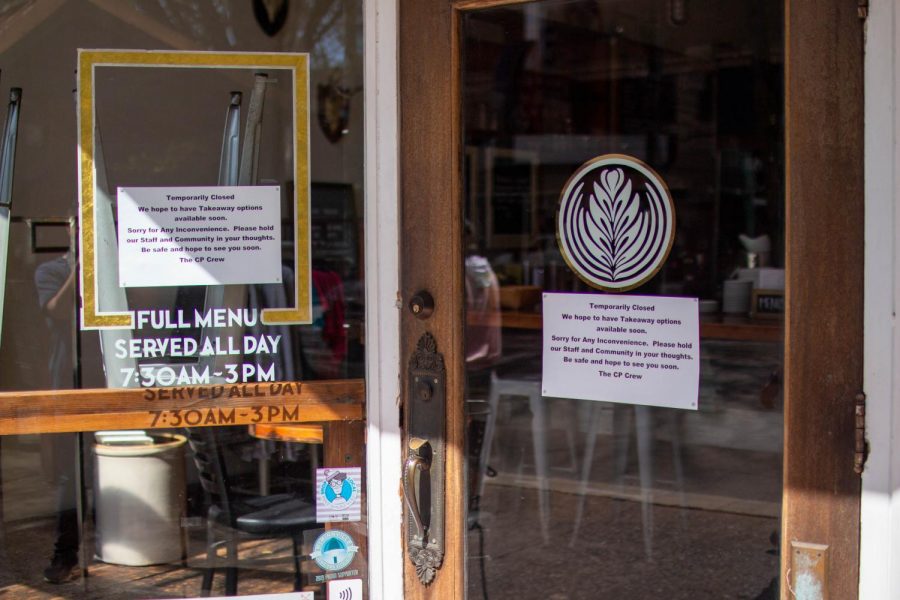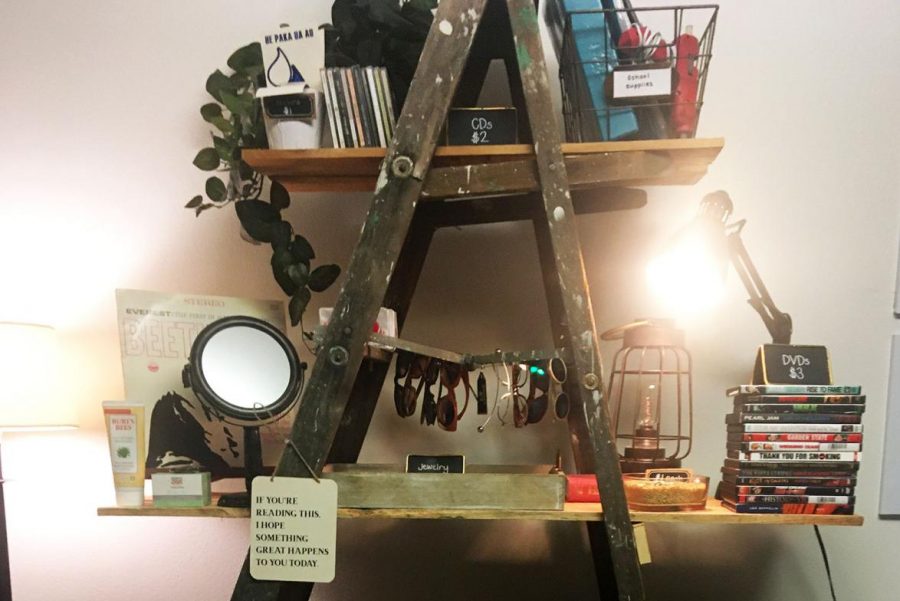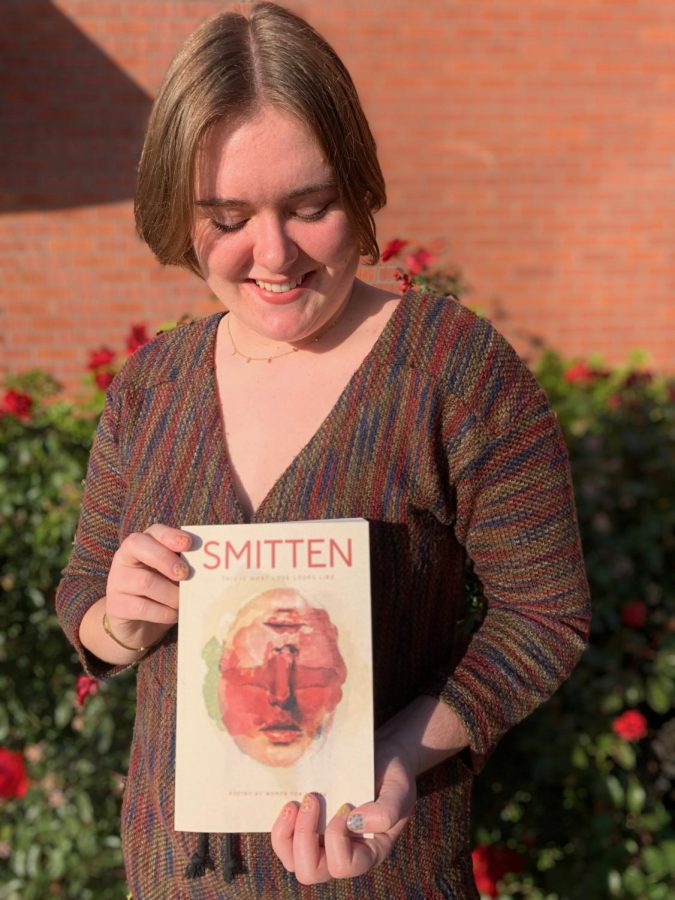May: the last month of Spring Semester. The sun begins to shine its rays out from behind grumpy clouds, and the beautiful Oregon flora decides to let loose and tickle the allergies of passersby. But as the landscape gets gussied up for spring days and summer nights, a shadow washes over the minds of students, faculty and administrators alike. It’s a shadow of distraction, stress and anticipation; it is “senioritis.”
“I think it starts about Spring Break,” Kristi Mackay, Career & Community Services program coordinator, said. “I think that students are just tired of doing the same old-same old, and they see the light at the end of the tunnel.”
Mackay works with seniors across campus to help them build networking skills, beef up their résumés and hunt for jobs. She said she notices senioritis take hold most in students who don’t have jobs lined up for post-graduation because they are stressing about both job hunting and schoolwork.
She said students can alleviate these stresses by working on career planning every day, even if it’s just for 10 minutes.
“You feel like you are doing something, and you are doing something: You’re making a little progress,” Mackay said.
Job hunting isn’t the only cause of senioritis; in fact, the bug infects more than just launching seniors.
“I usually see it happen more with the first-year students than I do with the seniors,” Professor of Economics Jeff Summers said. “I think by the time students get to be seniors, they’ve been through the pressure enough that I don’t see the signs of fading as I do with the underclassmen.”
Summers teaches the senior capstone sequence within the economic major: Econometrics in the Fall Semester and Senior Seminar in Economics in the spring. Having taught at Linfield since 1992, he’s found a way to design these classes to best counteract the attention dispersal that seniors experience in the spring.
He said much of the fall class involves researching and writing a thesis paper, and the spring course is a follow-up to that. This prevents students from being burdened with an enormous essay and during the last month of class. He said you have to space “goalposts” for students to meet throughout the semester.
“I describe it as their brains are full,” Summers said. “They’re there, they’re trying to participate, they’re trying to absorb a bit more, but they’re absorbed to capacity. You have to develop teaching strategies to try to increase the absorptive capacity on a daily basis.”
Summers advised students suffering from senioritis to communicate with their professors, who understand when students are overwhelmed with scheduling job interviews and managing end-of-the-year projects.
“I think faculty in general are reasonable about their expectations with people,” he said.
Lisa Weidman, assistant professor of mass communication, also said communication is key as graduation nears.
“It’s annoying when you could have helped someone and you didn’t know that they needed help,” Weidman said.
And when this results in late assignments, it also poses a challenge to completing senior grading, she said.
Common signs of senioritis that Weidman sees are skipping class, staring out classroom windows and trying to talk professors out of assignments.
“If they do show signs [of senioritis], call attention to that and ask them to reengage,” Summers said.
Weidman said students should create a rewards system for themselves and balance work with going outside and enjoying the sunny weather. And if students are too focused on marking their calendars with big red Xs until graduation, Weidman said students can spend time productively by planning, for example, what to wear to graduation parties and what gifts to buy for graduating friends.
“Graduation day will get here soon enough; that’s why I say don’t give up on everything that you need to do between now and then, and there will be plenty of time to celebrate when that day comes,” she said.
Christina Ries, coordinator of health promotions and student wellness, encouraged students to stay focused and finish strong.
“Use this brain you’ve been developing for four years,” she said. “And don’t freak out if you don’t know what’s next. All of our experiences lend to teaching us something.”
To keep focus and minimize end-of-the-year stress, Ries said students should eat well, exercise daily, get enough sleep and try to maintain balance.
“[Seniors] aren’t even looking past graduation, but they’re just looking at graduation day because that’s all they can handle right now,” she said. “You don’t want to screw up over four years of work in the last month that you’re here. Go to class and finish up and be proud of the work you’ve done by showing up, just show up, that’s the least you can do.”
With the weather warming up and graduation approaching, Ries said seniors want to spend more time with friends they think they aren’t going to see after graduation and this often means consuming more alcohol than usual. But Ries said to me mindful of moderation.
“You’ve accomplished this great milestone, and you don’t need to commemorate that with a hangover,” she said.
To Mackay, managing senioritis is all about prioritizing school work, career searching and socializing.
“It’s not a stress-free period for seniors,” Summers said. “By the time you’re a second-semester senior and it’s May, the last four years are done; you’re starting to turn your attention to the next 40, 50 years.”
Seniors must remember that the end of undergraduate studies is near.
“This is a big transition, and you should honor that by giving it some thought,” Ries said.
And they should also keep in mind that Linfield’s faculty and administrators not only understand the tug of senioritis, they also feel it themselves.
“I’m sympathetic to how students feel in the springtime. Nature pulls at me in the same way,” Weidman said.
Seniors and senoristis: words from the victims
“If I ever get weary of homework, I just remind myself to take it one day and one project at a time and to just keep pushing on. I pray to God for strength and grace each day. And my housemates and friends have also been a big support for me.”
-Sierra Stopper
“I think luck is really important for making it through the last month.”
-David Kellner-Rode
“My senioritis is spurred by my readiness to enter the job force and do away with seemingly petty, repetitive, non-utility maximizing busywork. I’m one of the few who already has a full-time job lined up, and the solidification of this next step in life severely distracts with my current state and makes the current assignments and expectations seem trivial.”
-Brian Richardson
“With a month left, try not to fail a class, try to make memories, and try to enjoy yourself.”
-Kurtis Williams
“My senioritis took full effect after Spring Break. Symptoms include, but are not limited, to disregarding major project deadlines until the day before they are due, drinking more than three days a week, an unnatural need to visit Cabana at least once every weekend, and making Happy Hour the number one priority in your life.”
-Heather Snyder
“Embrace senioritis for what it is: a desperate attempt to use the time we have left to enjoy the company of our friends and freedoms before we all shoot off in wildly different life trajectories.”
-Brian Richardson
“You have to just do your work. It’s almost over. And after Linfield, people are less flexible about missing deadlines or being apathetic. Here, it’s easy for us to not do something and go have fun instead. But in the real world, we can’t do that.”
-Alessa Karlin
“I think the worst thing you can do for your motivation is giving yourself too easy of a credit load, especially if your schedule includes a lot of lower-level classes. Even if you aren’t taking very many credits, you should find other ways to stay involved on campus, such as taking on a leadership position in a club or taking on more responsibilities within your department.”
-Jordan Jacobo
“When you’re doing an internship which can possibly become a full-time position after graduation, you tend to put more effort into your job. It’s really hard to find that balance between work and classes.”
-Nguyen Tran
“I have procrastinated on all my assignments this term, waiting until the last minute, and I have no motivation to do them. Instead I would rather hang out with my friends.”
-Deirdre Christiensen
“Think about what, in 10 years, you will regret not having done during this time in your life. Then go out and do it!”
-Sammi Mack
“Get all of your work done early so you can enjoy the last two weeks of sunshine before we’re all shipped back to reality. Also, learn to drink your coffee black.”
-Matthew Moss
Tips from seniors to overcome senioritis and stay focused:
Be productive on rainy days: “If it is sunny, well, NOTHING gets done.” –Jessie Aerni
Set personal deadlines and make to-do lists: “The easiest way to for me to fend off senioritis has been to take my to-do lists one day at a time and to make sure I accomplish the things that are of highest priority — which doesn’t always mean schoolwork. I let myself relax and take advantage of my last semester at Linfield by doing what I want to do and spending time with the people who matter to me.” –Sammi Mack
“To stay focused, I make lists of things I need to accomplish and remind myself daily to cross some off.” –Deirdre Christensen
Act normal: “By pretending that everything is normal, that this last month of study will be followed by years more (when in reality, I am entering directly into the job force), I trick myself into the usual state of academic progressiveness that used to sustain me.” –Brian Richardson
Create a “zoned” atmosphere: “Usually I combat senioritis by going to the library and removing all distractions while I work and drinking energy drinks to keep me focused.” –Lindsay Allen
Find a time that’s most productive for you: “I’ve pinpointed that my most productive hours are in the morning on the weekends. It sounds lame, but it works, and I’ve stayed on top of all my assignments. I’ve also learned when to stop trying in the evening/early morning and to attempt the assignment the next day instead of trying to plough through at 3 a.m.” –Carolyn Blood
Get “Zen”ed: “Find a mantra that helps keep you focused on the end goal. You’re almost there.” –Carolyn Blood
Reward yourself: “Cheesecake if succeed.” –Jake Masin
Seek balance: “Keep in mind though that if you try to spend too much time just with friends and not on schoolwork, you will stay up quite late working on homework and then not have energy for friends later.” –Sierra Stopper
Make your work fun: “Because I enjoy acting, [senioritis] becomes less of a problem. I feel more inclined to do my work because it’s fun and enjoyable. It’s not as tedious as writing a paper. So it’s much easier for me to stay focused if I enjoy the assignment.” –Alessa Karlin
by Kelley Hungerford/Editor-in-chief
Kelley Hungerford can be reached at [email protected].







